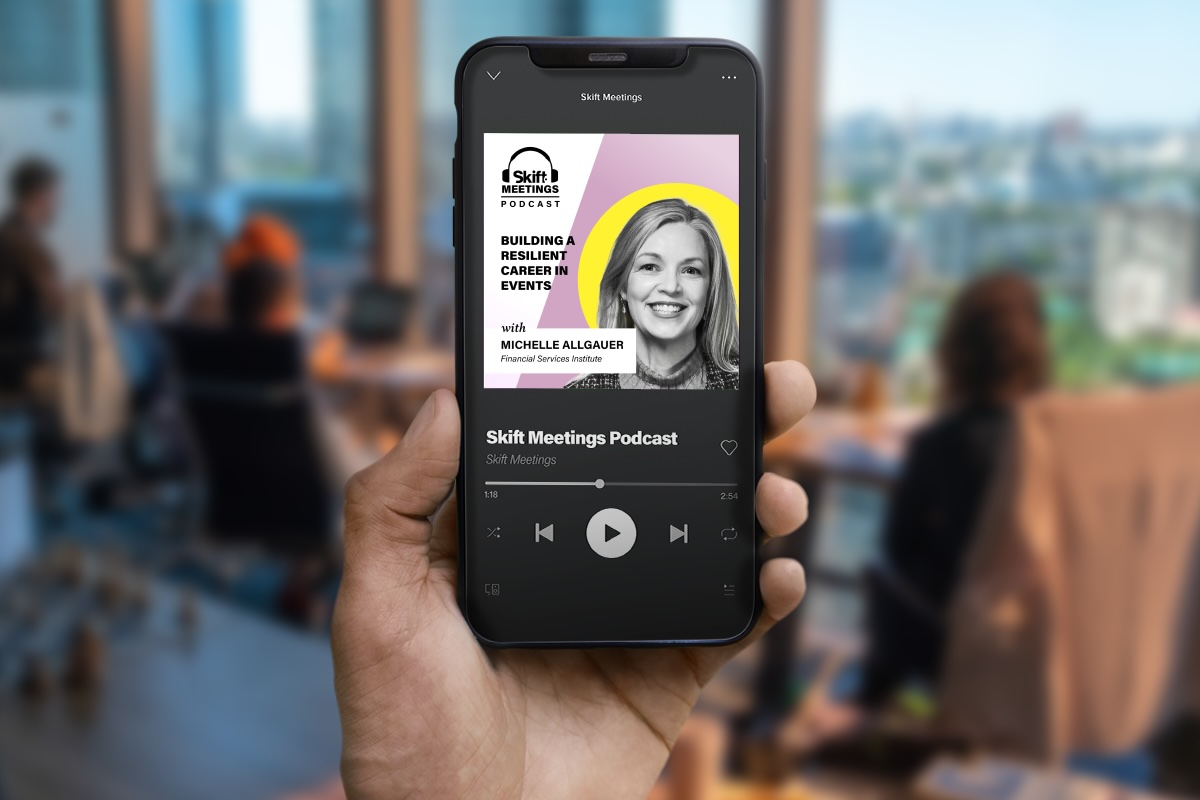What makes an event professional sound so… professional? Here are a list of phrases that should be avoided at all costs if you are looking to make a good impression.
Language can affect how people see you and you want to be taken seriously, whether it is with your clients, your boss or your colleagues. If you say the wrong thing it could reflect poorly on you or your organization and you might be viewed as not eventprof material.
That being said you may be guilty of saying one or more of these phrases without realizing the impact they are having on others and what they ACTUALLY mean (aren’t you glad we are here!). So take note of these sayings that you should strike from your vocabulary and possibly pick up the new alternatives instead!
-
“It’s not my fault”
Translation: it may or may not be my fault but I am too afraid to admit it. Either way and I’m definitely not taking responsibility for it.
When you refuse to be held accountable for your actions you will find that people will stop wanting to work with you. It doesn’t really matter whether something is your fault or not, what matters is how you can deal with it from then on. If there is an issue with something at your event as the event manager you sometimes have to take ownership of the situation even if it isn’t strictly your fault. For example if a speaker or supplier has let you down the important thing is to find a solution, not argue who is to blame.
Taking responsibility shows you are a proactive problem solver and if something genuinely isn’t your fault this can often be apparent without resorting to using these words and you can still be professional without saying you’re sorry for something you haven’t done.
Alternative: Let’s come up with a solution to fix it.
-
“You’re wrong”
Translation: My opinion is the only one that matters, it’s my way or the highway!
Things are very rarely black or white which means that it is usually a matter of perspective. Talking people down and telling them categorically that they are wrong, does not foster good relationships and comes across as offensive and aggressive.
Being unable to recognize other points of view or professionally discuss different opinions does not reflect well on your people skills and will often lead to disagreements. It also shows that you can’t be persuasive, which is a skill that is often needed for negotiating and business in general.
Alternative: I think I see things in a different way, such as…
-
“Is that okay?”
Translation: HELP ME, I have no idea what I am doing and I am hoping your response will let me know one way or the other.
Avoid this phrase particularly when you are talking to clients because it can sound needy, like you don’t know what you are doing and are looking for assurance.
Ultimately this shows a lack of confidence and particularly in event planning it can present what you have done in a negative light and make them think twice about the choices. Instead, show that you know what you are talking about and that you wanted to make sure they are getting what they want.
Alternative: Is this what you had in mind?
-
“Trust me on this”
Translation: I am hoping for a miracle just as much as you are but I haven’t figured out how I am going to pull this off yet.
Asking someone to trust you like this is usually a sure fire way to make them suspicious. If you are looking for trust you should instill this in the other person and earn it rather than outright ask for it. The other main reason this phrase comes off as unprofessional is because in business you have to provide evidence, proof and other means to satisfy superiors and colleagues rather than it being guess work.
Additionally this phrase is usually used as a way to stall until you have managed to come up with a solution and therefore does not promote trust at all. Instead try to acknowledge that you are still working on finding a solution or naturally create trust between you and others, you never know you may find someone willing to lend you a hand or offer an alternative.
Alternative: I am currently working on a solution.
or
I believe this solution will work.
-
“If you say so”
Translation: I’m annoyed, have stopped listening and do not respect what you are saying any longer but can’t be bothered to discuss it.
In business, event planning and personal relationships it is important to address things or misunderstandings can be made and it could affect things negatively in the long term. This phrase tends to lean towards the passive aggressive stance and can be upsetting for the other party so it has no place in a business setting.
Additionally, it deliberately does not agree with the other person and this can make it seem like you are trying to avoid an argument, when in reality there is still a need for discussion. If you are having trouble seeing someone else’s point of view then openly discuss it without the need for being petty and unprofessional.
Alternative: Okay I understand what you are saying.
-
“No offense, but”
Translation: I am going to say something rude and offensive but I have absolved myself of guilt because I have used this phrase and don’t expect you to get offended.
Generally people only start a sentence this way if they are aiming to say something offensive but don’t want to come across that way. You may feel like it softens what you are saying by admitting that it is not your intention, however it actually puts people on edge knowing you are about to say something inappropriate. What makes it worse is that this phrase makes people feel more uncomfortable because it makes it difficult to express offense because you have tried to present it in this way.
There is no alternative here, the rule to live by is; if you have to say “no offense” before something then it is probably not appropriate or professional to say whatever is coming next and you should avoid it altogether.
-
“*insert name* told me to do it”
Translation: I can’t think for myself and I am blaming someone else for my mistakes because I didn’t think it through to begin with.
This not only proves you are not willing to take responsibility for your actions but also says that you are unable to think for yourself. If you would not give someone credit if things had gone well then you don’t get to place blame when things don’t. Have you ever heard the phrase “if your friend told you to jump off a bridge would you do it?” this is the first thing that comes to mind and immediately makes you seem inexperienced and incapable of working things out for yourself so you should avoid saying this at all costs.
Alternative: Sorry, we clearly made a mistake here.
-
“It’s a win-win”
Translation: I am winning and you’re getting something minimal that I am hoping to get away with, without you noticing.
You are not a gangster trying to convince someone not to spill your secrets, you are in a place of business and this phrase has no place (no, not even in negotiations). Palming things off as a win-win situation is usually a quick way to make the other party look closer at what you are doing and may have the opposite result you are hoping for because of how unprofessional it sounds. If you are trying to get away with a better deal, then less is more, if not the other party is likely to already know where they stand and don’t need you to tell them.
Alternative: I think this is mutually beneficial
-
“I’m the real deal”
Translation: I’m full of myself and I am about to make that much more obvious (in case you hadn’t already noticed).
Cringe! This is one of the worst because you’re pretty much saying (in the least subtle way) how wonderful you are. If you are the “real deal” then prove it by being good at your job and getting your work done, these words are unnecessary. Imagine someone in your workplace who you aspire to be, we bet that they’ve never told you how good they are! Ultimately it comes across as arrogant, unprofessional and you probably won’t make you a lot of friends.
Alternative: I strive to be the best I can be.
-
“To be honest”
Translation: This is probably a lie, but what is a lie really? I am hoping to convince you otherwise.
This is one of the more recent favorites that people assume will help them to be more persuasive when in fact it does the opposite. Stating you are being honest tends to get people thinking that you weren’t being honest to begin with which has the opposite effect and makes them suspicious of you as well as causing them to disregard anything you are saying from then on. If you are going to try and bend the truth then drawing attention to that is not going to help your case (you are better off being truthful throughout and then you won’t have this problem).
Alternative: If you want my opinion, I think…
In Conclusion
Ultimately you have to remember that professionalism is how you behave and speak, anyone can voice their opinions but it takes a true professional to get their point across without seeming to get their personal feelings involved. It can take time and practice to perfect professional business language but these phrases are the perfect place to start and once you have removed them from your vocabulary you’ll be in an excellent position to be taken seriously around the office.





